- Home
- Stephanie Laurens
It Happened One Night Page 13
It Happened One Night Read online
Page 13
Did that mean they were not married?
He had never known for sure. He still did not.
But for perhaps an hour and a half of their lives, he and Nora had been man and wife. Happily-ever-after had lasted that long.
What would have happened, he wondered, if he had inherited his title and fortune six months sooner than he had? But the answer was obvious. When he had inherited—quite unexpectedly—he had suddenly found himself being warmly congratulated and aggressively courted by the very man who had pursued him to Scotland and beaten him within an inch of his life when he had been nothing but a secretary without prospects. Suddenly he had become a very desirable son-in-law indeed. By that time Ryder had been so close to the brink of disaster that his ruin had become common knowledge and creditors were pressing him from all sides. A wealthy son-in-law would have been a godsend—just as it would have been six months earlier when Ryder had been trying to marry his daughter to old Potts, who, true to his name, was very wealthy indeed.
“What I have done with my life in the last ten years is nothing to do with you, Richard,” Nora said now, turning to him as she rubbed the last of the crumbs from her hands onto the grass. “Just as what you have done is nothing to do with me. Let us leave it at that, shall we? If you intend to remain out here, I shall return to the inn room to rest. If you wish to rest, I shall remain out here.”
If her father had not pursued her, driven on, no doubt, by the deep fear that he would lose his daughter to an impoverished man and thus not be able to use her to lure a wealthy husband to help pay his debts—had he not pursued her, or had he behaved with greater honor after he had, then they would have been married for ten years now, he and Nora. They would be long familiar with each other. They would probably have children. They—
A few men, all smiling and jovial, were shooing everyone off the grass. Fiddlers and pipers were tuning their instruments on the far side of the green. Two young girls were straightening out the ribbons about the maypole. The dancing was about to begin.
“Stay,” he said, getting to his feet and reaching out a hand to help her to hers. “Let’s watch the dancing together, Nora. One gets a chance to watch maypole dancing only once a year, after all.”
“Oh,” she said, her eyes traveling up the maypole and down to note all the activity about it, “it would be a pity to miss it.”
And she smiled again as she looked about, a bright, warm, happy expression. The sun glinted off her gaudy beads—her rare and priceless blue pearls. And he wondered if after all he was sorry that this had happened today. There was something undeniably seductive—
But he shook his head slightly, pushing aside the thought.
And then girls and young men took the ribbons in their hands, the musicians struck up a merry, toe-tapping tune, and the dancing began.
He stood watching, his shoulder almost, but not quite, touching Nora’s. And he felt a sudden welling of nostalgia for his youth, for those days of charmed innocence, when he had had employment that satisfied him and when there had been Nora, his employer’s daughter, to admire from afar. To weave dreams about. To fall headlong in love with, long before he knew she returned his feelings. And finally to hold and to kiss and to rescue from an undesirable marriage—rushing her off to the border and beyond like the proverbial knight in shining armor rescuing his damsel in distress.
Except that there had been nothing final about it.
No happily-ever-after.
She was tapping her foot and clapping her hands, as were most of the other spectators about the green. She was smiling again, her eyes sparkling with pleasure.
She looked up at him.
He looked back.
And, God help him, he smiled at her.
Chapter Five
It struck Nora that she had been terribly, terribly lonely for a long time. So long a time, in fact, that it seemed to her she had always been lonely.
She had been a pampered and adored child, it was true, even though her mother had died when she was but a year old. But she had rarely had companions of her own age, and she had never been sent away to school. As a girl she had been taught to expect a glittering come-out Season and a match with a wealthy, distinguished gentleman. But then, before she could even be taken to London to participate in a Season, she had been told that she would marry Sir Cuthbert Potts, who was amiable and good-hearted—but on the wrong side of his sixtieth birthday. She had not understood until she had objected that he was also to be her father’s savior—she had not known how close to financial ruin her father was.
She had been a lonely girl.
And for the last several years—well, “loneliness” was not a powerful enough word. Not that she was in the habit of feeling sorry for herself. But now, when she was in the very midst of such exuberant celebrations and watched the dancers weave their colored ribbons about the maypole while the sun beamed brightly down on them all—now it struck her that she was lonely.
For Richard stood at her side, almost shoulder to shoulder with her, in fact. But they were as far apart as if they had been standing on opposite sides of the globe. Her loneliness was worse than if she stood here alone and hungry and homeless, as she would have been if the owner of the crashed curricle had been anyone but him.
And yet a perverse part of her was undeniably happy. This day was like a time out of time, something to be lived and hugged to herself and remembered—even if only with pain. Her cheap, garish, bright blue beads caught her eye as they glinted in the sunlight, and she knew she would keep them and treasure them as if they really were the costliest of jewels.
The human heart was an incomprehensible thing.
Her right foot beat out the time of the music against the grass. She clapped her hands, as most of the spectators were doing, and smiled. It was May Day and she was alive and healthy and…
Well, why not be happy when the chance offered itself?
It does not flatter you. It considerably underestimates you.
And how ravishing you look.
He had spoken those words to her today, and he was standing beside her now—Richard was. It was still an incredible thought. The last time she had seen him was in the dining room of their inn in Scotland. He had not stopped her father from taking her upstairs to pack her belongings. He had not come after her either then or when they left the inn. He had never come after her. She had not heard from him again except for one strange, brief, formal letter in which he had offered to marry her. It was after he had unexpectedly inherited his title and fortune, six months after their elopement, no more than a week after the final horrible crash of her father’s fortune and ruin of all his prospects.
It was an offer that had been made out of pity—perhaps. Or out of a desire to gloat over her father, who had pleaded with her to accept.
She had refused.
She turned her head now to look up at him, and he looked back—and smiled.
He had been a serious young man, her father’s secretary. She had admired him for a long time before she had walked past the open door of his study one day and he had looked up from his books and their eyes had met and he had smiled at her—and she had plummeted all the way into love with him.
His smile had not changed. It began in his eyes, crinkling them attractively at the corners, and spread to his mouth.
Nora was smitten with a yearning nostalgia that reached back beyond the empty, bitter years since they had last smiled at each other. That had been on their wedding day.
His eyes lingered on hers, and surely—ah, surely—there was an answering longing there.
Why had everything gone so terribly wrong?
The music and the dancing had stopped, and one of the men who had shooed them all off the green fifteen minutes ago was circling it again, beckoning with both hands, urging other people to take the ribbons and dance with the May Day.
“Come along, sir,” he called when he arrived close to them. “Mr. Kemp, is it not? Bring your lady and dance, sir. It
was a happy chance that stranded you here today. It is said that couples who dance together about the maypole dance together through eternity.”
There was a burst of merry laughter and a few cheers from those standing nearby, and then he moved on, calling similar persuasions to other people as he went.
Richard was still half smiling.
“Shall we?” he said, gesturing toward the maypole.
And the yearning was there again, more intense than ever.
“I have not danced about a maypole since I was a girl,” she said. But her eyes said that she was ready to try again.
“It has been at least that long for me,” he said. “If you get hopelessly tangled up in the ribbons, I will be right there with you. Shall we try anyway? At the very least we will provide these villagers with a good laugh.”
And then he did something that fairly took her breath away. He lifted one hand and pulled free the bow of her bonnet ribbon beneath her chin. She felt the warmth of his fingers against the bare flesh of her neck and gazed into his eyes, which seemed very blue and very close to her own.
And then her bonnet was off and being tossed to the grass with his tall hat and the rolled-up drawing, and a laughing young girl was placing a blue ribbon in her hand, a yellow one in his. They were going to dance about the maypole together to welcome the spring.
To welcome all that was new and bright and hope-filled.
They were going to dance together through eternity, if the leader was to be believed. The memory of his words filled her with sudden laughter, and she saw an answering amusement in Richard’s face when she looked at him.
Ah, the day seemed suddenly very warm and very bright.
And then the fiddles and pipes began playing again.
The dance took all of Nora’s concentration over the next fifteen minutes as she dipped and weaved among the other dancers, following the instructions called out by the leader, taking her ribbon with her and discovering that miraculously it did not become hopelessly snarled even once but plaited itself about others and then unplaited itself again.
Richard, she realized, was laughing out loud.
So was she.
She could hear the feet of the dancers and the spectators thumping on the ground, hands clapping, children shrieking at play, hawkers calling out their wares.
And this, she thought as colors whirled about her, was happiness.
Just this glorious, fleeting moment of springtime.
This maypole about which she and Richard danced together.
They twirled about each other, twining their ribbons, laughing into each other’s eyes, sharing body heat for the merest instant. And then they danced on to other partners before meeting again and twirling in the opposite direction to free the bonds that bound them—until the next time.
By the time the music stopped again, Nora was breathless. She had to stoop forward, one hand pressed to her side, while she laughed and caught her breath. The leader was striding about the green again, coercing more villagers into taking the ribbons for the next dance.
When she straightened up, Richard was standing before her, her bonnet in one hand, the rolled portrait in the other. He looked flushed and happy—and achingly familiar despite all the changes ten years had wrought.
“Oh,” she said, taking her bonnet from him, “that was such fun. Have you ever had more fun in your life, Richard?”
“No,” he said—and something in the one brief word caused her fingers to pause as she tied a bow beneath her chin again.
They could not seem to stop gazing at each other. And suddenly all her carefree happiness was gone, to be replaced by a sadness just as intense.
This was Richard, who had not rescued her or come after her. Who had ultimately pitied her or seen a chance for a type of revenge against her father—but had not persisted past his one brief, chill offer and her refusal. He was Baron Bourne, and she was an unemployed lady’s companion. He was in his thirties, she in her late twenties.
Her vision blurred, and she turned her head sharply away and busied herself with tying the bow.
“Nora.” His voice was soft and perhaps as full of misery as her heart—or perhaps not.
He had no chance to say more, and she had no chance to turn her head and look back into his eyes.
“Mr. and Mrs. Kemp?” a pleasant, cultured man’s voice asked from close by.
They both turned.
“Yes,” Richard said.
“We have just heard about your unfortunate mishap,” the gentleman said—he obviously was a gentleman. “Have we not, Adeline? You were fortunate indeed to have walked away from it without serious injury. I trust neither of you was injured?”
“No,” Richard said, while the dark-haired lady with him smiled at them both. “Thank you. We escaped unharmed as did everyone in the stagecoach, it seems.”
“Winston Bancroft, baronet,” the gentleman said, offering his hand to Richard, “and my wife. We live at Ashdown Manor.” He gestured vaguely behind him.
He bowed to Nora, and his wife offered her hand.
“If we had known about the accident sooner,” she said, addressing Nora, “we would have offered the hospitality of our own home. You may still move to Ashdown if you wish and stay for as many days as prove necessary. We would be delighted to have you. We understand that it was the stagecoach driver who was to blame.”
“It was an accident,” Nora said.
“Thank you,” Richard said. “But the Crook and Staff is a decent hostelry. We expect to be able to resume our journey tomorrow morning.”
“Are you by any chance one of the Devonshire Kemps?” Sir Winston asked Richard.
“I am,” he said.
“You are not Bourne himself, are you?” the gentleman asked.
“Actually I am,” Richard admitted.
And sooner or later, Nora thought, they were going to discover that Lord Bourne did not possess a wife. That was going to be a fine scandal to fuel village gossip.
“Lady Bourne.” Lady Bancroft smiled at her again. “We are delighted to discover you enjoying the village festivities, are we not, Winston? Wimbury always has the best May Day celebrations I have come across anywhere. And they will continue this evening. Did you know? We always invite everyone to join us on the terrace and lawns of Ashdown for refreshments and dancing and fireworks. Do say you will come, too. We would be so very pleased.”
Richard and Nora exchanged glances.
“We would be delighted,” Richard said.
“Splendid!” Sir Winston rubbed his hands together and beamed at each of them in turn. “We will send the carriage for you. You must come and dine with us first. No, please do not protest. I believe we can offer a more appetizing meal than you would get at the Crook and Staff, and we certainly will not permit you to walk all of two miles before you sit down to it. We will send the carriage.”
“Thank you,” Nora said. “That is kind of you.”
“We are on our way to the lace stall so that Adeline can lighten my purse,” Sir Winston said. “It is all in a jolly good cause, of course. Would you care to join us?”
“We went there earlier,” Nora told him. “The work is exquisite.”
“We are on our way back to the inn for a rest,” Richard said.
“After watching you dance, I am ready to excuse you,” Sir Winston said before touching the brim of his hat to Nora and strolling off, his wife on his arm.
“How terribly awkward,” Nora said. “We cannot possibly go, of course,”
“You would spurn their hospitality?” Richard said. “We will certainly go.”
“Richard.” She turned to him, frowning. “They believe we are married. And they know who you are.”
“I am not sure which would be more of a lie,” he said. “To say we are married or to say we are not. But for today at least we are man and wife, Nora.”
He offered his arm.
“For today,” she said, taking it.
“I have alread
y assured you,” he said, his voice suddenly cold, “that you are safe from me tonight, Nora, if that is what you meant by your emphasis upon today.”
The ribbons of the maypole formed moving patterns of bright color against the blue sky as they made their way back to the inn. The music played as merrily as before. The air resounded with the thumping of feet and the clapping of hands. And with happy voices and laughter.
But some light seemed to have gone from the day.
His arm was warm and sturdy beneath her hand.
Two qualities in him she had once trusted—warmth and sturdiness.
Qualities he had turned out not to possess after all.
Chapter Six
Richard spent the next few hours sitting first inside the taproom, nursing a glass of ale rather than draining it off and feeling obliged to order another, and then outside at one of the tables set in such a position that one could enjoy the sunshine and watch the festivities on the green. He did not want for companionship in either place. There was always someone—and usually a whole group—with whom to chat. Most men seemed happy to while away the hours with a glass of ale while their womenfolk and children amused themselves at the fair.
Nora had retired to their room, presumably to rest. He left her alone there until it was time to get ready for the evening. He found her seated at the dressing table, sweeping her hair up into a knot high on her head. She had changed into a different dress, a blue-gray silk that was clearly meant for evening wear. It was short-sleeved and high-waisted, he saw at a glance, and modestly cut at the bosom. It was neither un-fashionable nor in the first stare of fashion. It was the sort of garment one might expect a woman to wear when she was someone’s companion and needed to look respectable without in any way drawing attention to herself.
For some reason the dress and all it said about her irritated him.
Her hands—and her hair—remained suspended above her head as her eyes met his in the mirror.
They were slim arms, and it was a delicate, swanlike neck that was revealed to his gaze. Her hair was still thick and shining and wavy. If the soberness of the dress was intended to disguise her beauty, it was having just the opposite effect.

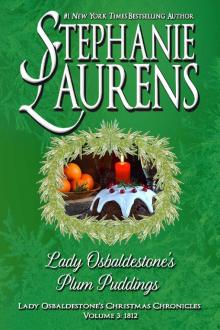 Lady Osbaldestone’s Plum Puddings: Lady Osbaldestone’s Christmas Chronicles Volume 3
Lady Osbaldestone’s Plum Puddings: Lady Osbaldestone’s Christmas Chronicles Volume 3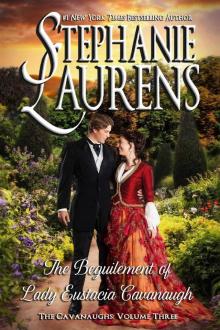 The Beguilement of Lady Eustacia Cavanagh: The Cavanaughs Volume 3
The Beguilement of Lady Eustacia Cavanagh: The Cavanaughs Volume 3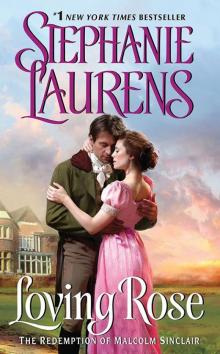 Loving Rose: The Redemption of Malcolm Sinclair (Casebook of Barnaby Adair)
Loving Rose: The Redemption of Malcolm Sinclair (Casebook of Barnaby Adair)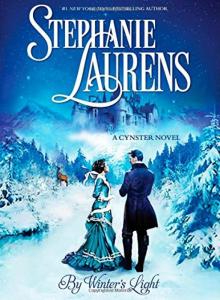 By Winter's Light
By Winter's Light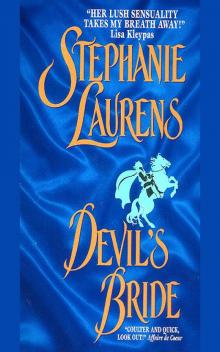 Devil's Bride
Devil's Bride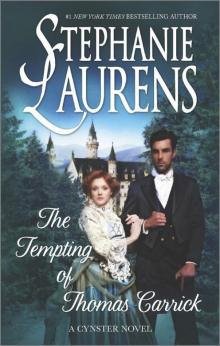 The Tempting of Thomas Carrick
The Tempting of Thomas Carrick![Cynster [22.00] A Match for Marcus Cynster Read online](http://i1.bookreadfree.com/i/03/16/cynster_[22_00]_a_match_for_marcus_cynster_preview.jpg) Cynster [22.00] A Match for Marcus Cynster
Cynster [22.00] A Match for Marcus Cynster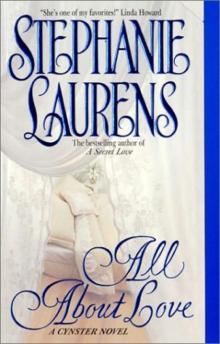 All About Love c-6
All About Love c-6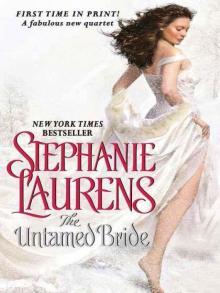 Cobra 01 The Untamed Bride
Cobra 01 The Untamed Bride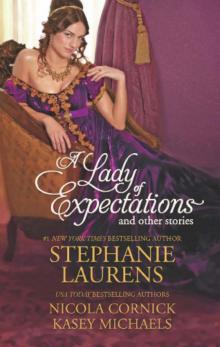 A Lady of Expectations and Other Stories
A Lady of Expectations and Other Stories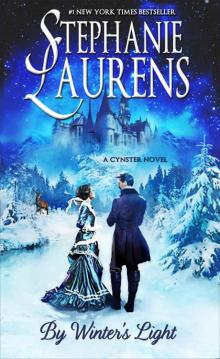 By Winter's Light_A Cynster Novel
By Winter's Light_A Cynster Novel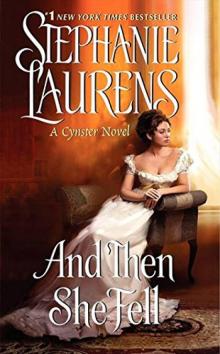 And Then She Fell
And Then She Fell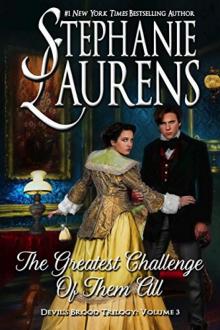 The Greatest Challenge of Them All
The Greatest Challenge of Them All The Edge of Desire
The Edge of Desire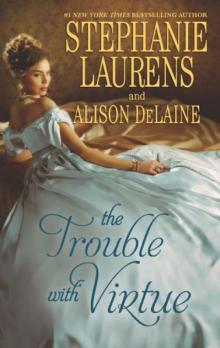 The Trouble With Virtue: A Comfortable WifeA Lady by Day
The Trouble With Virtue: A Comfortable WifeA Lady by Day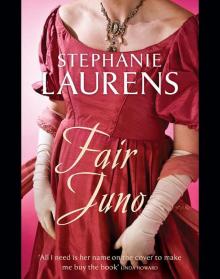 Fair Juno
Fair Juno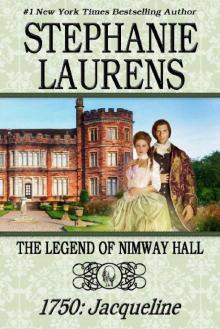 THE LEGEND OF NIMWAY HALL: 1750 - JACQUELINE
THE LEGEND OF NIMWAY HALL: 1750 - JACQUELINE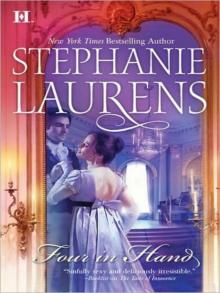 Four In Hand
Four In Hand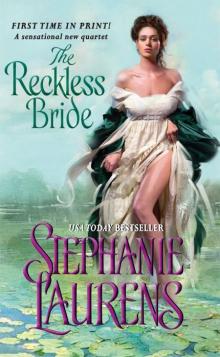 The Reckless Bride
The Reckless Bride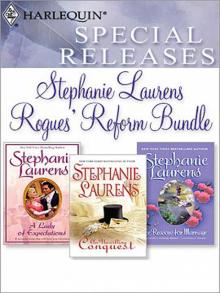 Stephanie Laurens Rogues' Reform Bundle
Stephanie Laurens Rogues' Reform Bundle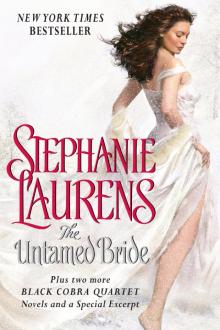 The Untamed Bride Plus Black Cobra 02-03 and Special Excerpt
The Untamed Bride Plus Black Cobra 02-03 and Special Excerpt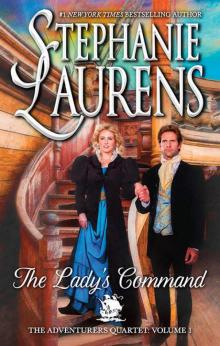 The Lady's Command (Adventurers Quartet #1)
The Lady's Command (Adventurers Quartet #1)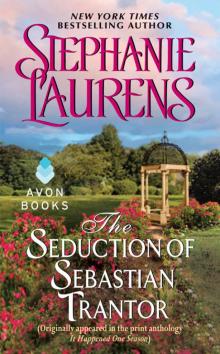 The Seduction of Sebastian Trantor
The Seduction of Sebastian Trantor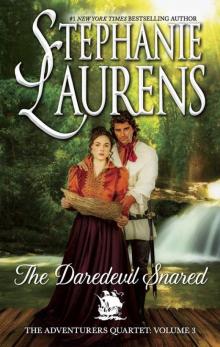 The Daredevil Snared (The Adventurers Quartet Book 3)
The Daredevil Snared (The Adventurers Quartet Book 3)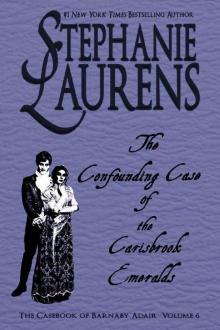 The Confounding Case Of The Carisbrook Emeralds (The Casebook of Barnaby Adair 6)
The Confounding Case Of The Carisbrook Emeralds (The Casebook of Barnaby Adair 6) Lord of the Privateers (The Adventurers Quartet)
Lord of the Privateers (The Adventurers Quartet)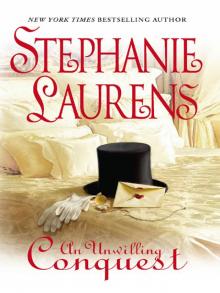 An Unwilling Conquest
An Unwilling Conquest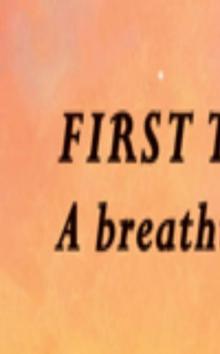 Brazen Bride
Brazen Bride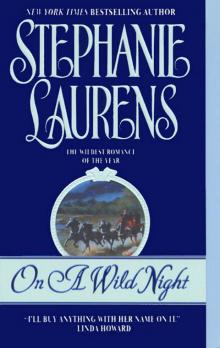 On a Wild Night
On a Wild Night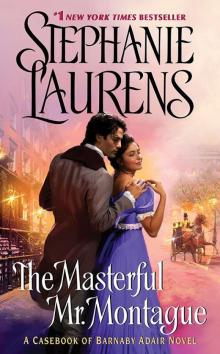 The Masterful Mr. Montague: A Casebook of Barnaby Adair Novel
The Masterful Mr. Montague: A Casebook of Barnaby Adair Novel Lord of the Privateers
Lord of the Privateers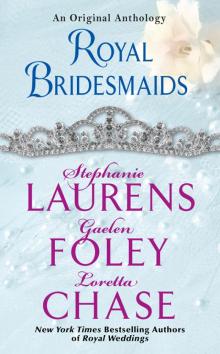 Royal Bridesmaids
Royal Bridesmaids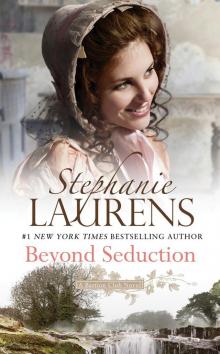 Beyond Seduction
Beyond Seduction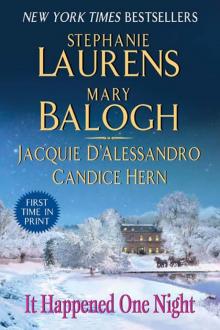 It Happened One Night
It Happened One Night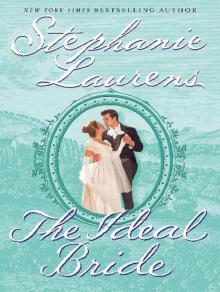 The Ideal Bride
The Ideal Bride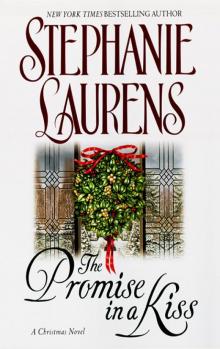 The Promise in a Kiss
The Promise in a Kiss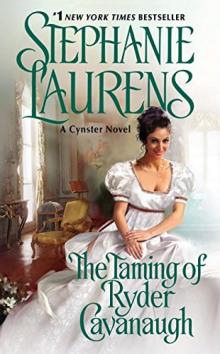 The Taming of Ryder Cavanaugh
The Taming of Ryder Cavanaugh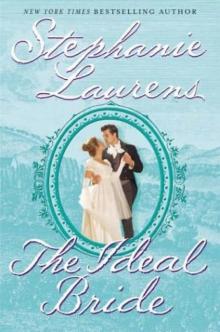 The Ideal Bride c-12
The Ideal Bride c-12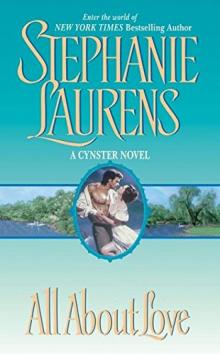 All About Love
All About Love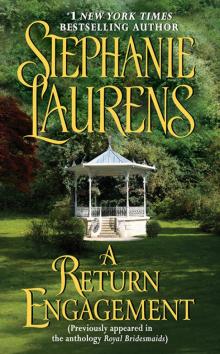 A Return Engagement
A Return Engagement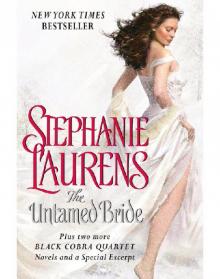 The Untamed Bride Plus Two Full Novels and Bonus Material
The Untamed Bride Plus Two Full Novels and Bonus Material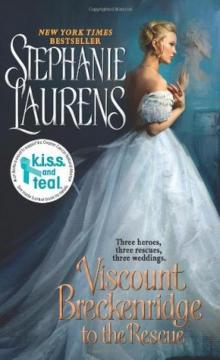 Viscount Breckenridge to the Rescue
Viscount Breckenridge to the Rescue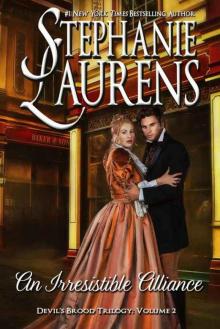 An Irresistible Alliance (Cynsters Next Generation Novels Book 5)
An Irresistible Alliance (Cynsters Next Generation Novels Book 5)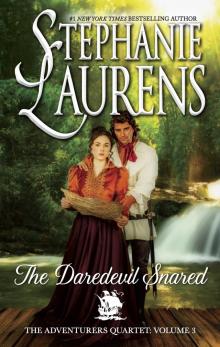 The Daredevil Snared
The Daredevil Snared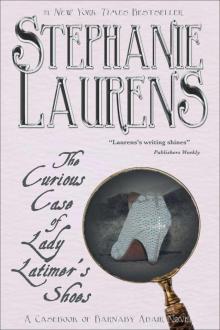 The Curious Case of Lady Latimer's Shoes: A Casebook of Barnaby Adair Novel
The Curious Case of Lady Latimer's Shoes: A Casebook of Barnaby Adair Novel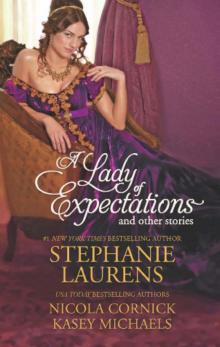 A Lady of Expectations and Other Stories: A Lady of ExpectationsThe Secrets of a CourtesanHow to Woo a Spinster
A Lady of Expectations and Other Stories: A Lady of ExpectationsThe Secrets of a CourtesanHow to Woo a Spinster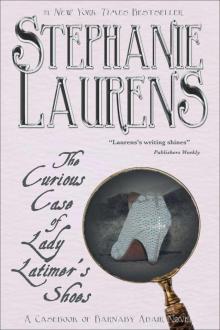 The Curious Case of Lady Latimer's Shoes: A Casebook of Barnaby Adair Novel (The Casebook of Barnaby Adair)
The Curious Case of Lady Latimer's Shoes: A Casebook of Barnaby Adair Novel (The Casebook of Barnaby Adair)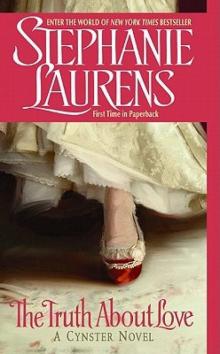 The Truth About Love
The Truth About Love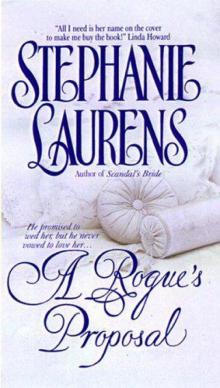 A Rogue's Proposal
A Rogue's Proposal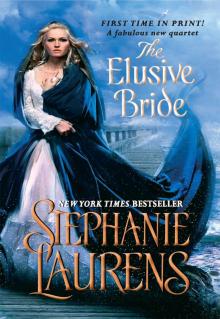 The Elusive Bride
The Elusive Bride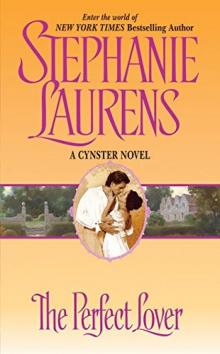 The Perfect Lover
The Perfect Lover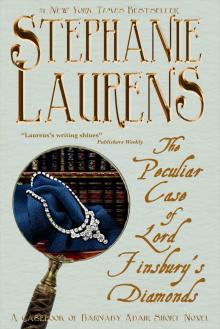 The Peculiar Case of Lord Finsbury's Diamonds: A Casebook of Barnaby Adair Short Novel
The Peculiar Case of Lord Finsbury's Diamonds: A Casebook of Barnaby Adair Short Novel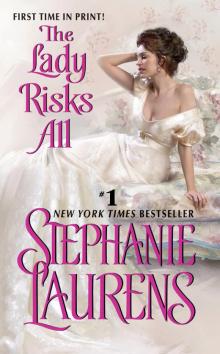 The Lady Risks All
The Lady Risks All The Murder at Mandeville Hall: The Casebook of Barnaby Adair: Volume 7
The Murder at Mandeville Hall: The Casebook of Barnaby Adair: Volume 7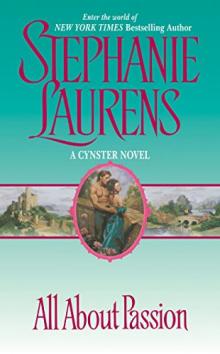 All About Passion
All About Passion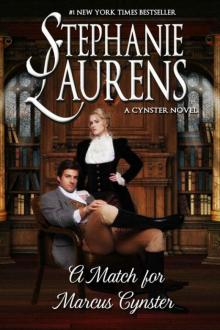 A Match for Marcus Cynster
A Match for Marcus Cynster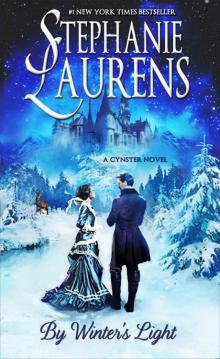 By Winter's Light: A Cynster Novel (Cynster Special Book 2)
By Winter's Light: A Cynster Novel (Cynster Special Book 2)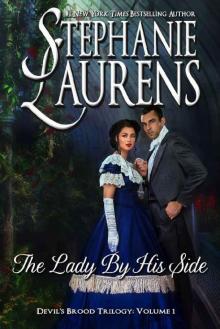 The Lady By His Side
The Lady By His Side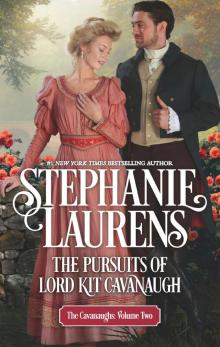 The Pursuits of Lord Kit Cavanaugh
The Pursuits of Lord Kit Cavanaugh Tangled Reins
Tangled Reins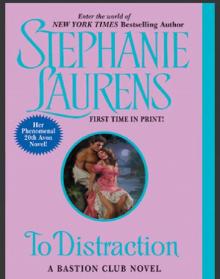 To Distraction
To Distraction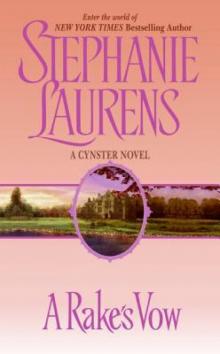 A Rake's Vow
A Rake's Vow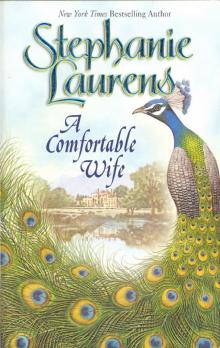 A Comfortable Wife
A Comfortable Wife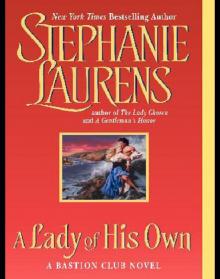 A Lady of His Own bc-3
A Lady of His Own bc-3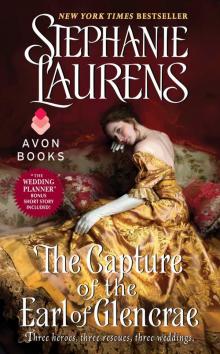 The Capture of the Earl of Glencrae
The Capture of the Earl of Glencrae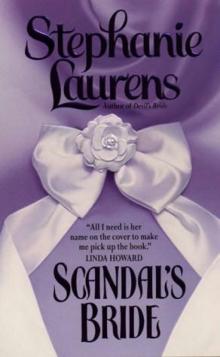 Scandals Bride c-3
Scandals Bride c-3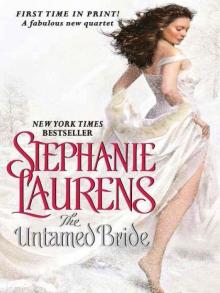 Untamed Bride
Untamed Bride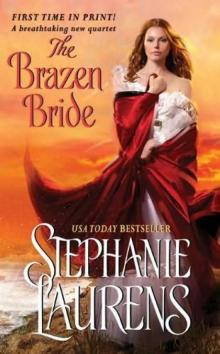 The Brazen Bride
The Brazen Bride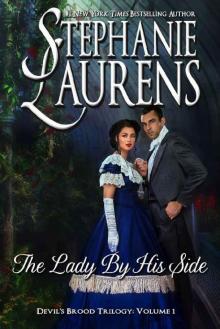 The Lady By His Side (Cynsters Next Generation Novels Book 4)
The Lady By His Side (Cynsters Next Generation Novels Book 4)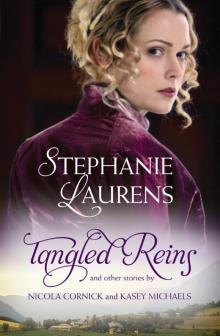 Tangled Reins and Other Stories
Tangled Reins and Other Stories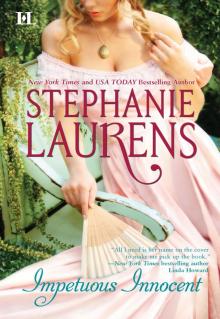 Impetuous Innocent
Impetuous Innocent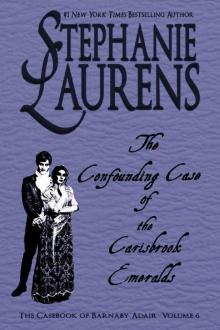 The Confounding Case Of The Carisbrook Emeralds
The Confounding Case Of The Carisbrook Emeralds Stephanie Laurens - B 6 Beyond Seduction
Stephanie Laurens - B 6 Beyond Seduction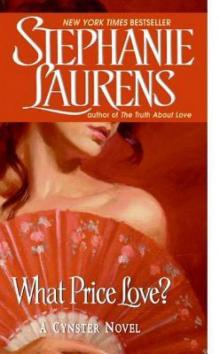 What Price Love?
What Price Love?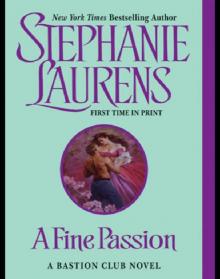 A Fine Passion
A Fine Passion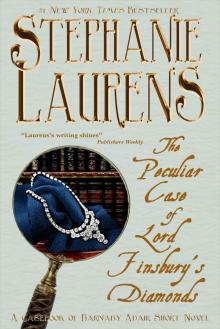 The Peculiar Case of Lord Finsbury's Diamonds: A Casebook of Barnaby Adair Short Novel (The Casebook of Barnaby Adair)
The Peculiar Case of Lord Finsbury's Diamonds: A Casebook of Barnaby Adair Short Novel (The Casebook of Barnaby Adair)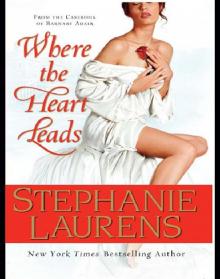 Where the Heart Leads
Where the Heart Leads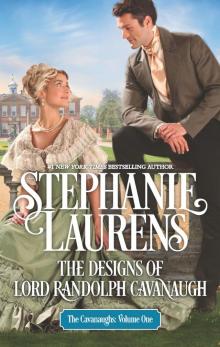 The Designs of Lord Randolph Cavanaugh
The Designs of Lord Randolph Cavanaugh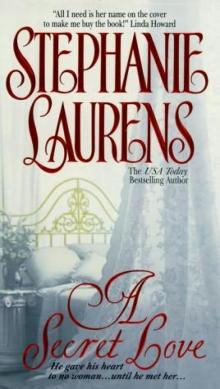 A Secret Love c-5
A Secret Love c-5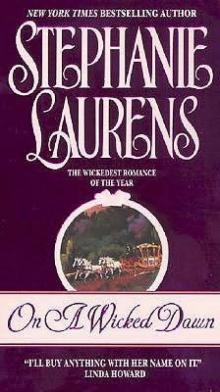 On a Wicked Dawn c-10
On a Wicked Dawn c-10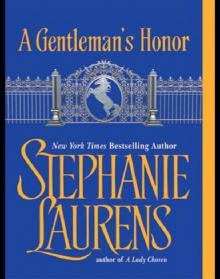 A Gentleman's Honor
A Gentleman's Honor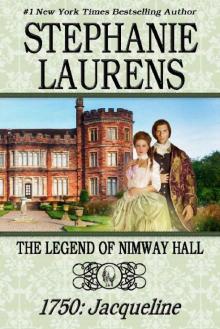 THE LEGEND OF NIMWAY HALL_1750_JACQUELINE
THE LEGEND OF NIMWAY HALL_1750_JACQUELINE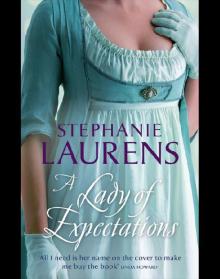 A Lady of Expectations
A Lady of Expectations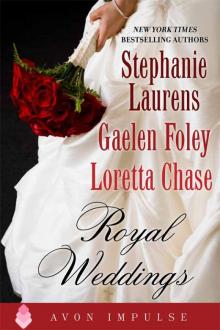 Royal Weddings: An Original Anthology
Royal Weddings: An Original Anthology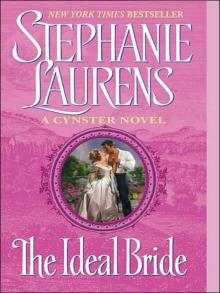 The Ideal Bride (Cynster Novels)
The Ideal Bride (Cynster Novels) Mastered by Love
Mastered by Love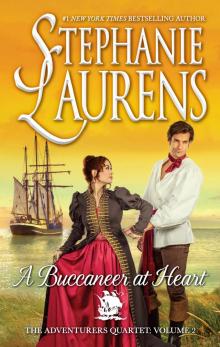 A Buccaneer at Heart
A Buccaneer at Heart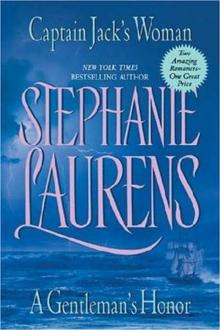 Captain Jack’s Woman / A Gentleman's Honor
Captain Jack’s Woman / A Gentleman's Honor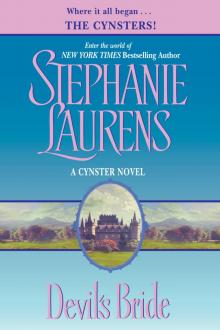 Devil's Bride with Bonus Material
Devil's Bride with Bonus Material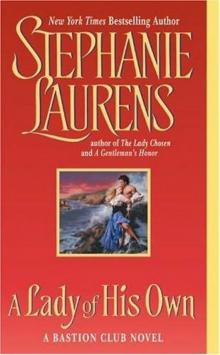 A Lady of His Own
A Lady of His Own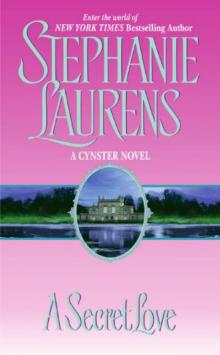 A Secret Love
A Secret Love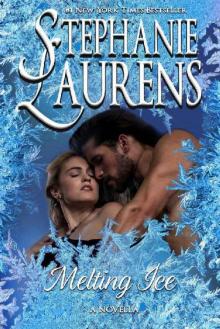 Melting Ice
Melting Ice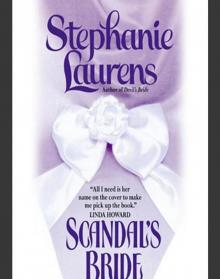 Scandal's Bride
Scandal's Bride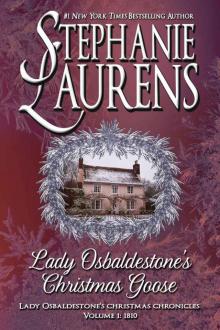 Lady Osbaldestone’s Christmas Goose
Lady Osbaldestone’s Christmas Goose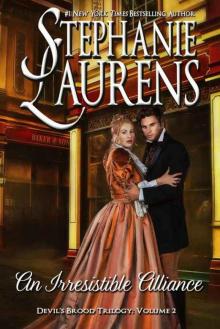 An Irresistible Alliance
An Irresistible Alliance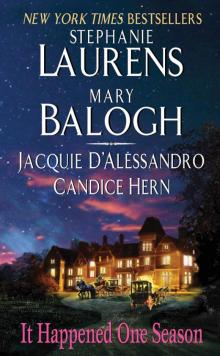 It Happened One Season
It Happened One Season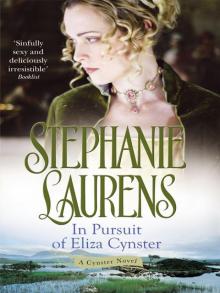 In Pursuit Of Eliza Cynster
In Pursuit Of Eliza Cynster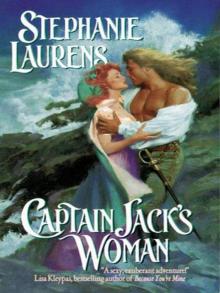 Captain Jack's Woman
Captain Jack's Woman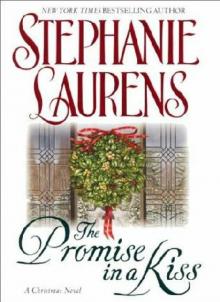 The promise in a kiss c-8
The promise in a kiss c-8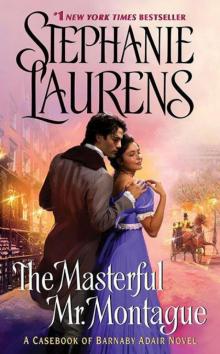 The Masterful Mr. Montague
The Masterful Mr. Montague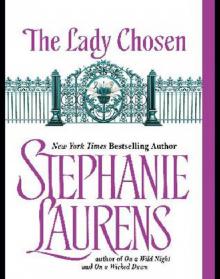 The Lady Chosen
The Lady Chosen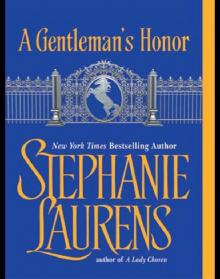 A Gentleman's Honor bc-2
A Gentleman's Honor bc-2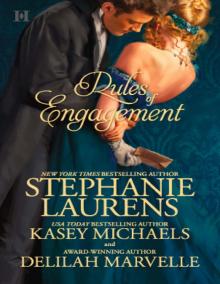 Rules of Engagement: The Reasons for MarriageThe Wedding PartyUnlaced (Lester Family)
Rules of Engagement: The Reasons for MarriageThe Wedding PartyUnlaced (Lester Family) Secrets of a Perfect Night
Secrets of a Perfect Night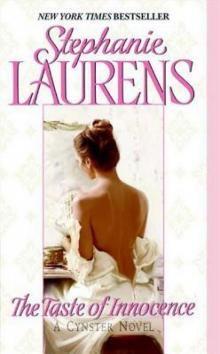 The Taste of Innocence
The Taste of Innocence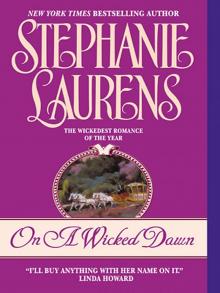 On A Wicked Dawn
On A Wicked Dawn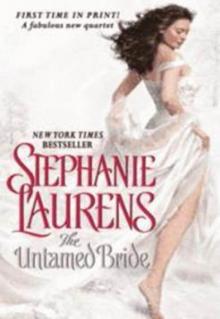 The Untamed Bride
The Untamed Bride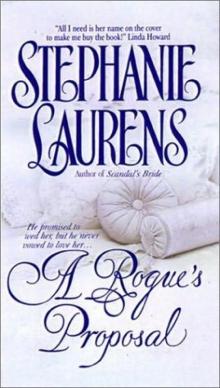 A Rogues Proposal c-4
A Rogues Proposal c-4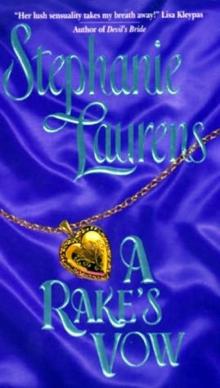 Rakes Vow c-2
Rakes Vow c-2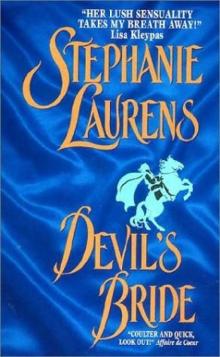 Devils Bride c-1
Devils Bride c-1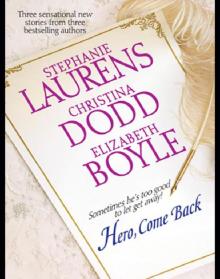 Hero, Come Back
Hero, Come Back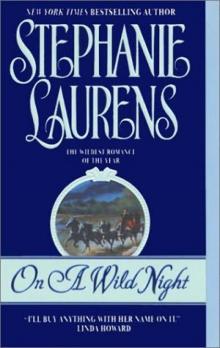 On a Wild Night c-8
On a Wild Night c-8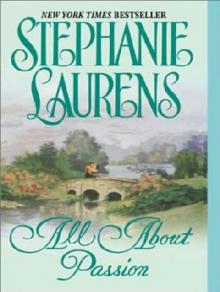 All About Passion c-7
All About Passion c-7